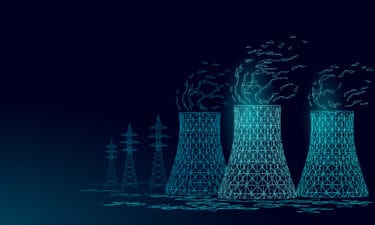According to Bloomberg, ConocoPhillips (NYSE:COP) is nearing a deal to sell over $1 billion in Canadian assets, with an agreement expected this week. The major rumoured buyer is Canadian Natural Resources Limited (TSX:CNQ)(NYSE:CNQ). In an environment where most oil majors are looking to offload non-core assets, companies willing to scoop up these various properties could acquire new revenue streams at attractive discounts.
There are multiple reasons for Canadian Natural Resources investors to think that they are getting a great deal.
Higher production with lower costs
The deal would be fairly sizable for Canadian Natural Resources. Production from the properties for sale, located in Alberta, British Columbia, and Saskatchewan, is said to represent roughly 20% of ConocoPhillips’s Canadian volumes. The acquisition would also be an important move for a company that wants to cut operating costs by $390 million more than was currently budgeted this year.
Canadian Natural Resources currently has operating costs that are a bit above $30 a barrel. It hopes to lower that to $25-27 over the next few years. This is an important step to stay competitive in a world of $50 a barrel oil. For example, Suncor Energy Inc. has seen its costs fall from $34 a barrel to $28 in the past 12 months alone. Even lower-cost producers are controlling costs. Cenovus Energy Inc. wants to lower its costs from $12-13 a barrel to $10-12 in the coming year.
But will it be enough?
Regardless of an opportunistic deal to acquire nearly $1 billion in complementary assets, Canadian Natural Resources remains a $30 billion company, making it Canada’s largest energy producer. And at the end of the day, it is still primarily an oil sands play.
According to the company’s management, its three major oil sands operations will remain its central focus. Between 2014 and 2018, it should more than double its oil sands output. Because oil sands are some of the most costly projects to run, it would seem that despite moving into lower-cost areas, Canadian Natural Resources will still need much higher oil prices in the future to remain viable.
Natural gas may be the hidden gem
Canadian Natural Resources is also Canada’s largest producer of natural gas. Last quarter, natural gas represented almost 40% of total production. While some production comes from Africa and the North Sea, most occurs in western Canada.
The company estimates that every $1 increase in natural gas prices translates into $410 million in additional cash flow. For a company that generates close to $0 in free cash flow over the past six months, this could be a game changer that few investors are paying attention to.
You must believe in higher oil prices in the long term
Canadian Natural Resources looks to be making some good moves. Buying up assets from a struggling competitor that is looking to ditch non-core properties is almost always a good idea. Plus, investors get extra upside should natural gas prices recover.
At the end of the day, however, Canadian Natural Resources remains an oil sands company. If you don’t believe in higher oil prices in coming years, an investment doesn’t make sense no matter how you look at it.






